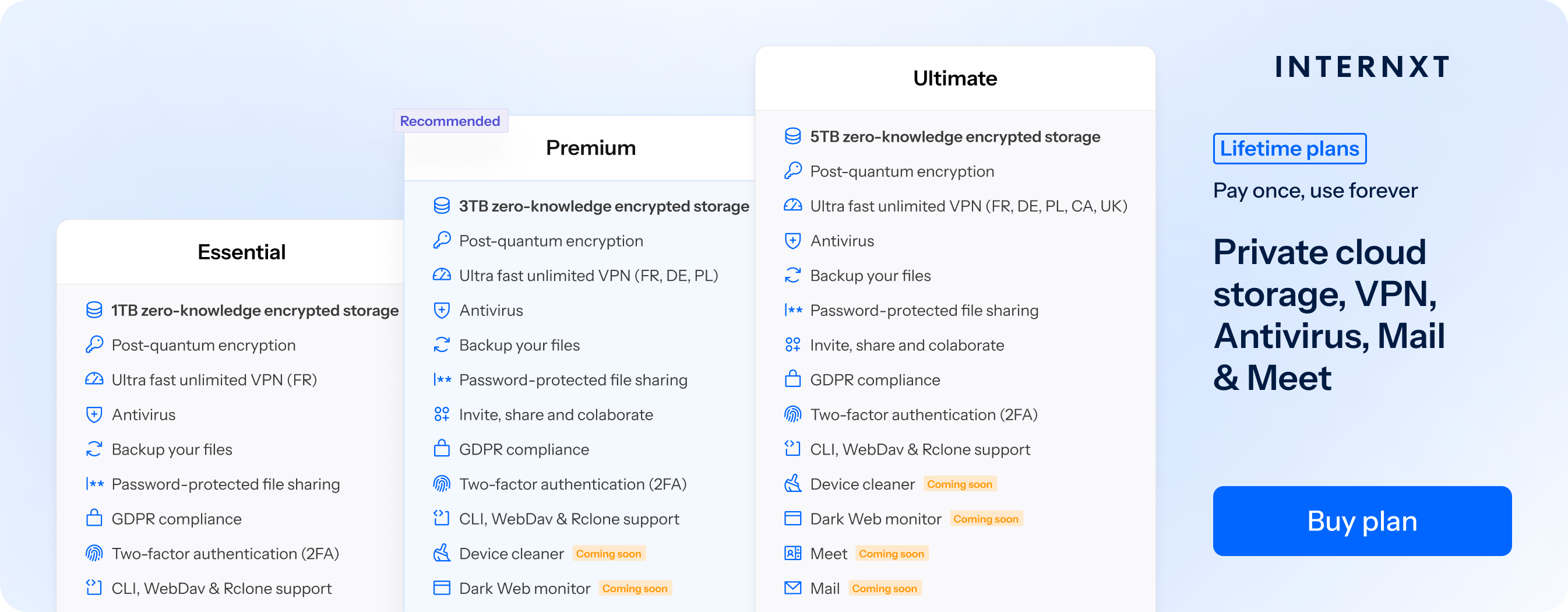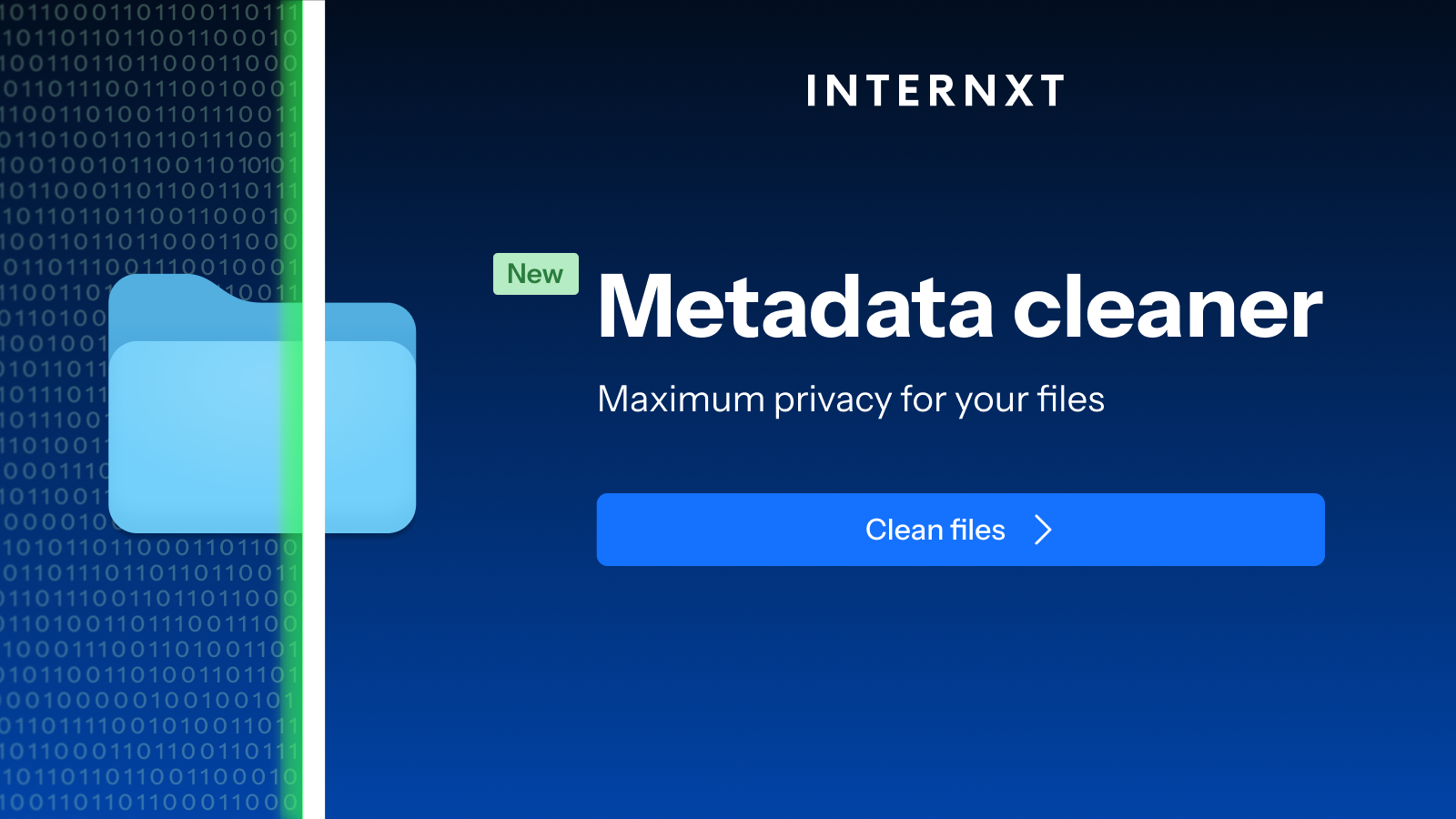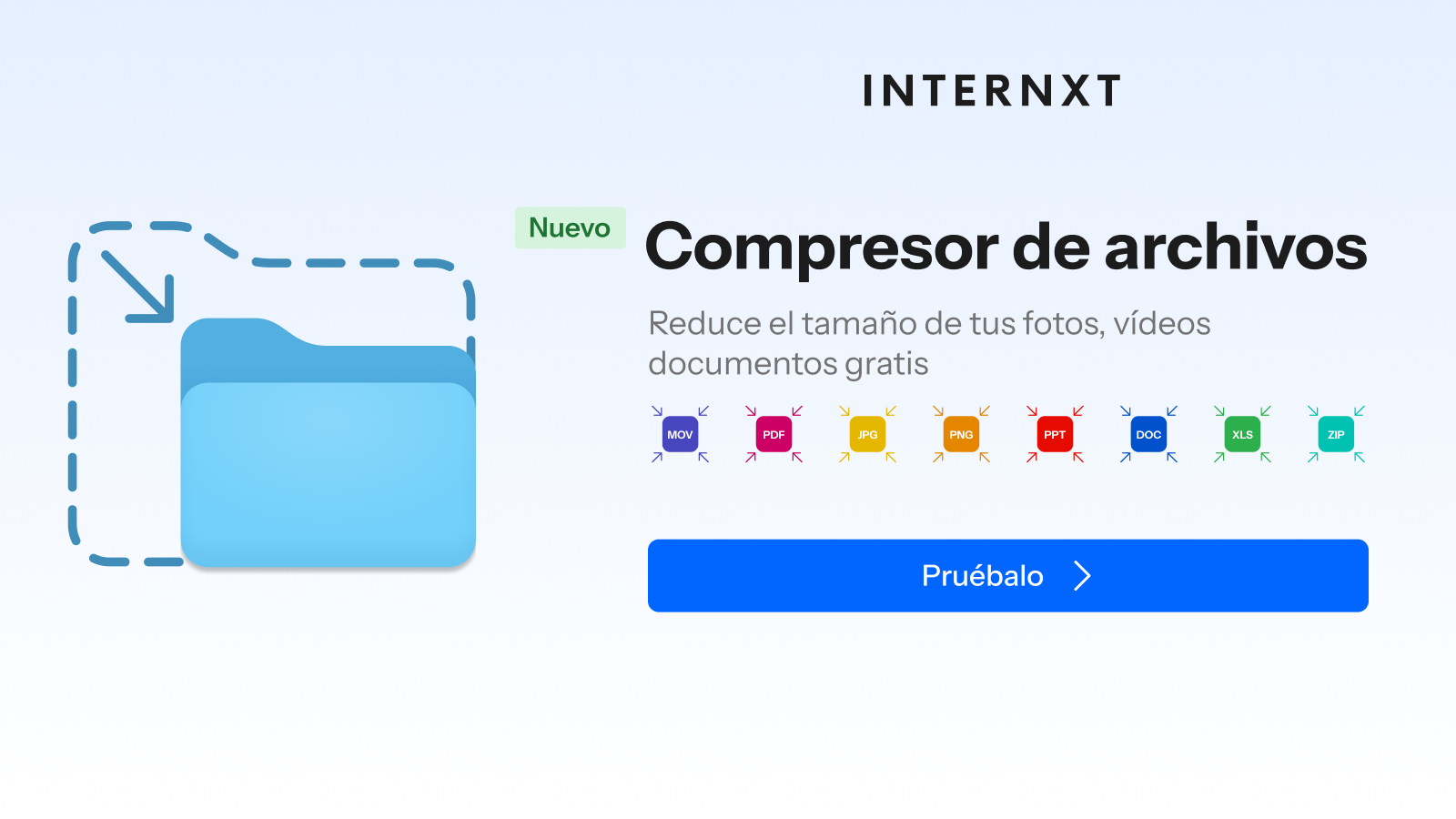How To Send A Large Amount of Photos In Privacy

Tired of trying to find the right platform to send your photos? Are you looking for a service that lets you send your photo albums or photography projects without compromising quality, security, or privacy?
Then this article will offer you all the tips, tricks, and tools you need if you’re trying to find the answer to how to send a large amount of photos online, or even offline.
We also cover the challenge of how to send a large number of photos via email, offering free tools and methods to bypass low email attachment sizes, so you can share photos with whoever you like, without having to send multiple emails and attachments.
Table of contents
- Challenges of sending a large number of photos online
- How to send large amount of photos online
- Best practices on how to send a large amount of photos
- Why Internxt is the best choice to send a large amount of photos online
Challenges of sending a large number of photos online
Size limits
Most platforms will have some kind of file limits; emails, especially, have a particularly low limit, normally around 25MB, making it difficult to send large amounts of photos without compressing or splitting them. Sometimes this is fine, but other times it can compromise the quality of high-quality images.
Privacy
Services that aren’t end-to-end encrypted or use zero-knowledge encryption like Google Photos can expose your sensitive information or metadata, which can lead to data breaches or risk exposing your photos online without your consent.
Drop in quality
Some platforms will automatically compress photos to save on bandwidth, reducing the image quality. This is a disadvantage if you’re working with RAW photos, which are popular for photographers, as it will reduce the quality of the image without you knowing.
Upload / download speeds
Some users may experience slow upload or download speeds based on the internet connection, size of the photos, or if the photos aren’t grouped or named efficiently.
How to send large amount of photos online
There are a few options available when sending large photos online, here are some of the most common ways you can do so without compromising the privacy or security of your photos.
File transfer platforms
Internxt Send is a free, end-to-end encrypted file sharing platform for you to share large video files or photos of up to 5GB. Depending on the size of your photos, with 5GB you could send up to 2,500 high-quality JPEG images, or 250 RAW images.
You can use Internxt Send as often as you like, so if you’re wondering how to send large amount of photos online for free, and without limits, Internxt Send is the best option.
All files are secured and protected from hackers thanks to end-to-end encryption, and you can choose to send your photos via a secure link or email.
Cloud storage
For important documents or photo sharing, cloud storage is one of the easiest and secure methods available to send a large number of photos. When using cloud storage for personal use, you can send your photos to friends or family easily via a secure link or email.

For businesses, however, it’s a bit more complicated. Compliance laws and the need to implement security protocols are a necessity to ensure that anything that’s shared online, such as photos or confidential documents, is protected against data breaches.
For the best and most secure way to send your photos, Internxt Drive offers GDPR compliance and post-quantum cryptography with zero-knowledge protocols.
This way, files are encrypted directly on your device, rather than the provider’s servers, for increased protection against hackers, ensuring you have total control over your privacy and that your shared files are protected from hackers.
With Internxt Drive, you can share files of up to 10GB, enough for up to 5,000 high-quality JPEG images, or 500 RAW images.
Get started with a free 1GB account, or choose from any of our paid plans, starting at €3/month
How to send a large amount of photos via email
Most email providers have limits (20 to 25MB) on the attachments you can send using their services.
However, sending unencrypted photos via email is another privacy risk to be aware of, but there are a few things you can do to bypass the file limits and increase the privacy of your photos when sending them via email. Here’s how:
- Combine the photos and create a .zip file to reduce its size.
- Encrypt and password-protect the file for increased security.
- Upload the file using a service like Internxt Drive or Send to create a secure link to the file.
- Add the link to the email.
Messaging apps
Messaging apps such as WhatsApp offer a generous upload limit of 2GB to send documents, such as videos, Word files, etc. With this limit, you could send up to thousands of photos, depending on the file size. In general, you’re looking at around:
- High-quality JPEG (~2–5 MB per photo)You can send approximately 400 to 1,000 photos with 2GB.
- Medium-quality JPEG (~1–2 MB per photo)Around 1,000 to 2,000 photos.
- Low-resolution JPEG (500 KB or less)Up to 4,000+ photos.
If you’re a photographer and you’re working with high-quality, RAW images, you’re looking at around 40 to 100 photos.
However, if you’re wondering if WhatsApp is safe for sending private photos, WhatsApp indeed uses end-to-end encryption, and nobody sees your messages, but as the company is owned by Meta, there is a chance that other personal information from your WhatsApp is shared.
Secure messaging platforms like Signal or Threema are considered to be more private alternatives to WhatsApp, although they have a reduced upload limit of 100MB.
Offline options
If you want to remain offline completely and want to know how to send a large amount of photos without relying on the cloud, email, or messages, another option is using physical devices such as USBs or external hard drives.
USBs are a cheap and efficient way to share photos with others, and as there are various storage sizes available, you can pick the right size to fit your needs. External hard drives offer even more storage, but with either option, you can share your photos with anybody either via mail or in person.

Physical drives also offer added insurance for the protection of your files, as backing them up and storing them using this method ensures you have additional copies of your photos offline. In doing so, you protect yourself against data loss or accidental deletion of your online files.
However, it’s still important to mix this storage method with cloud storage whenever possible, as physical hard drives are more prone to theft, damage, or corruption if not properly cared for.
Best practices on how to send a large amount of photos
Now we know how to send large amount of photos via email, cloud storage, messages, and physical media, we will cover some essentials you need to know to keep your privacy intact when sharing your photos.
Remove metadata
Your photos' metadata can reveal extra information you wouldn’t want anybody else to see, such as GPS coordinates of where the photo was taken, the date and time, and in some cases your name or username if it's embedded in the file settings.

For a free and secure way to remove metadata from your photos or any other documents, try Internxt's Metadata Remover for free. With it, you strip all metadata from your document, giving you additional privacy for your email attachments or shared links.
Access logs and restrictions
Monitor who has viewed your photos and implement restrictions on who can view or download your photos to prevent unauthorized access. Whenever you need to, make sure you can restrict access to your photos when necessary.
Watermarks
For photographers or other content creators, a watermark will prevent unauthorized use or sharing of your property without permission.
Avoid compressing important photos
Contracts or other sensitive documents may lose quality when compressed, depending on their format. For industries that rely on sending important information, like lawyers or those in healthcare, listing the quality of these documents could cause miscommunication or errors.
If you want to compress images without losing quality, Internxt offers a free file compressor tool for you to compress images, videos, and more.

Compatability
Another thing to be aware of is the type of photo you’re sending, and whether this will be compatible with whoever you are sharing the photo with. Some people may have trouble accessing certain photo formats because the device doesn’t support them, like HEIC, or they require special software to view or edit, like RAW images.
In this case, Internxt also offers a free file converter for JPG to PNG, JPG to HEIC and much more, so you can convert and share your photos quickly and easily with Internxt.
Why Internxt is the best choice to send a large amount of photos online
Internxt’s end-to-end and post-quantum encrypted product suite is the best choice if you’re looking for options on how to send a large amount of photos securely.
With its free tools such as Internxt Send, metadata remover, file converter, and expansive product suite, which includes a VPN, Antivirus, Meet, Mail, and more, you can get everything you need to get started with sending and storing all your files in complete privacy.
To get started with Internxt, you can join for free using your email and get 1GB of free storage, or choose from any of our annual or lifetime plans, which go up to 5TB. You can upgrade your account whenever you need to get more storage, so you never have to worry about running out of storage for your photos, videos, or anything else!

